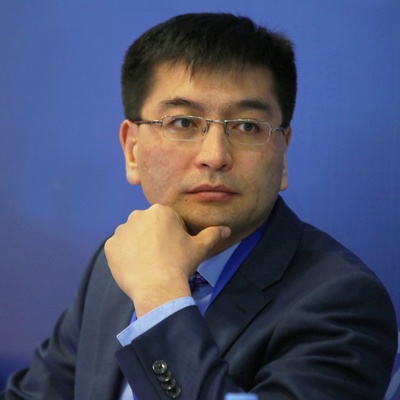
- #Multilateral Relations
- #South Korea
- #Technology & Cybersecurity

▶ The goal of Taza Koom digitalization was to jumpstart the economy, create jobs, and prevent corruption through transparency.
▶ If we can draw one lesson from the development experience of Korea then it is the personal involvement and commitment of ordinary citizens to the development of their own country. In the digital transformation of Kyrgyzstan, citizens and communities are also involved in bottom-up approaches.
When the Kyrgyz Republic embarked on its digital transformation program Taza Koom in 2017, it started looking for a global successful experience in this field. It found the role models among the Digital-5 Nations, which included the Republic of Korea, Estonia, Israel, New Zealand, and the United Kingdom. Since that time, the Government of Korea has become among the most active supporters of the digital development of Kyrgyzstan and of Central Asia more broadly. In this article, we will look into whether Korea’s experience can be strategically utilized by Central Asian countries (especially Kyrgyzstan) and what kind of diplomatic stance should Korea take in this regard.
How did the Kyrgyz Republic Embark on Digital Transformation?
During 2013-2018, I worked in different positions in the Kyrgyz government. In 2013, I was appointed as the head of the government think tank – the National Institute for Strategic Studies (NISI). During my tenure there, we researched and analyzed the best cases of economic development in the world. The case of South Korea was among the most inspiring ones. Within a generation, the country leaped from a developing country to the list of the most advanced economies in the world. How did it become possible? Thanks to visits from South Korean partners to Kyrgyzstan and our study tours to Korea, we learned about the concept of Knowledge Economy as one of the key aspects of sustainable development.
At NISI we got inspired by the experiences of countries such as South Korea, Estonia, and the United Kingdom, which were all members of Digital-5 Nations. Our think tank produced a policy note for the Kyrgyz Government on the importance of focusing on digitalization, creativity, and knowledge economy. This policy noted attracted the attention of the key decision-makers, who asked us to develop the idea further. This policy noted evolved into the National Digital Transformation Program “Taza Koom” (Transparent Society), which subsequently became the foundation for the Long Term Sustainable Development Strategy “Taza Koom – Jany Door 2040” (From Transparent Society to the New Era). The goal of Taza Koom digitalization was to jumpstart the economy, create jobs, and prevent corruption through transparency. The President of the Kyrgyz Republic endorsed this policy in February 2018; the Council on Sustainable Development, the highest decision-making body approved the Taza Koom Development Strategy in April 2018; and two months later, in June, we held a major international forum on Taza Koom, chaired by the Kyrgyz President and the UN Secretary General Antonio Guterres. Among the keynote speakers were experts from South Korea.
Digital Transformation – Top-Down Approaches
To implement the digital transformation policies, the Kyrgyz Government launched major programs with the support of development partners, including the World Bank, KOICA, European Union, US Embassy, OSCE, and many others. Among some of the most significant projects, the following can be highlighted:
- Digital Central Asia South Asia (Digital CASA) Project. Digital CASA is a project, funded by the World Bank, that aims to connect every city and village in the country to broadband internet, including all the social facilities such as schools, hospitals, and municipal offices. The project also aims to build the first government cloud data center G-Cloud. This initiative will is supported by KOICA.
- Tunduk Interoperability Platform. Tunduk is a platform that helps establish seamless interoperability among government agencies as well as with the private sector and other types of organizations. This platform facilitates the fast exchange of information between connected institutions and simplifies the provision of e-gov services to citizens and companies. The project received significant support from KOICA.
- Personal Data Protection Agency. As more citizens connect to the internet, more and more personal information and data are stored online. With the support of the European Union, an independent regulator was set up – Personal Data Protection Agency, which aims to help citizens, businesses, and government agencies and protect their personal data.
Digital Transformation – Bottom-Up Initiatives
If we can draw one lesson from the development experience of Korea then it is the personal involvement and commitment of ordinary citizens to the development of their own country. In the digital transformation of Kyrgyzstan, citizens and communities are also involved in bottom-up approaches. One of such communities is the Internet Society Kyrgyz Chapter (ISOC), an association of individuals that would like to contribute to the digital development of Central Asia Region. Some of its activities include the following:
1. Building Internet Infrastructure and Community Networks in remote and mountainous areas of the Kyrgyz Republic by setting up community internet networks in villages such as Suusamyr, Zardaly, Nookat, Enilchek, Ak-Shyirak, and others with the support from the global Internet Society Foundation in partnership with GIGA, a global initiative of UNICEF/ITU
2. Protecting Climate through ICTs for Disaster Prevention. Using smart sensors (IOTs) and long-range communications technologies (LoRa) Internet Society is monitoring climate conditions for disaster forecasting and prevention with the support of the ISOC-Foundation jointly with the International Center for Theoretical Physics (ICTP) in Italy to help the Ministry of Emergencies and the Ministry of Environmental Protection of the Kyrgyz Republic.
3. Sanarip Insan – Improving Digital Skills. Sanarip Insan (Digital Citizen) is a project on improving the digital literacy of youth and women in rural communities in partnership with the Ministry of Education and the Ministry of Culture; the project is funded by the European Union and implemented jointly with European Neighborhood Council (ENC)
4. IlimBox – Developing Educational Content. IlimBox or Internet-in-a-Box project brings educational content like Khan Academy videos and Wikipedia in the Kyrgyz language to schools and libraries in rural areas without access to the Internet with the support of the European Union and the United States; the Ilimbox project was listed among seven worldwide digital education initiatives by Thomson Reuters Foundation. This concept evolved into an online educational platform IlimBox.kg. ISOC continues to work on the online educational platform IlimBox.kg by creating an educational platform in Kyrgyz language with the support of the US Embassy in the Kyrgyz Republic
5. Tech4Society – Enhancing Cyber Security of Citizens. ISOC is working on cybersecurity protection and cyber hygiene for civil society organizations and citizens. The project is implemented jointly with partners such as the Nothing2Hide in France with the support of the Soros Foundation-Kyrgyzstan
Principles for digital development policies and for closing the digital divide
Thanks to the above-mentioned top-down approaches and bottom-up initiatives Kyrgyzstan has achieved major results in digital development. However, there are still unconnected communities, particularly in remote and rural areas. These are the most difficult areas for connectivity. Therefore closing the digital divide will require much effort. To effectively connect the unconnected, the following principles must be observed:
- Girls First – digital transformation activities must be convenient, safe, useful, and interesting for girls first, in that case, these efforts will be impactful for everyone.
- Rural First – The connectivity work needs to focus on rural areas, where the majority of the population resides and where there is a huge deficit of opportunities for local communities.
- Mobile First – Training, materials, and communications must be designed for smartphones, which are widely used in rural communities. Other devices such as PCs and Tablets are not easily accessible to a majority of the population.
- Local Language First – Given that the majority of the population speaks Kyrgyz language as the main or as the only language, materials, training, and events need to be in the native language
- Green First – given the climate crisis and the impact of technologies on ecology, the digital transformation activities must protect the environment and promote the clean and green approaches, including the use of solar panels for power generation and low-energy devices for climate monitoring.
How can Korea help digital transformation efforts of countries in Central Asia?
South Korea has been a close friend and staunch of development efforts of the Central Asian republics. The field of digital transformation was one of the sectors that benefited the most from Korean support. There are many areas where cooperation among our countries that will continue to be relevant, including the following:
- Policy Advice. Digital and green are two priority development areas for South Korea. These topics have the highest relevance to Central Asia. Thus policy advice on digital development and on climate resilience and protection, including through innovations and green technologies, would be important.
- Research and Academic Exchange. Joint research among Korean and Central Asian scholars could provide evidence-based and scientific foundations for continued digital transformation efforts. The JBNU-KOICA Digital Inclusiveness Project is one of the successful examples of research and academic exchange.
- Funding. South Korea through KOICA has been providing invaluable financial support to the governments of Central Asia. In Kyrgyzstan, such projects as Tunduk interoperability platform, G-Cloud government cloud data center, and Cybersecurity protection agency are among the important digital activities that became possible thanks to the support of Korea.
- Capacity Building and Study Tour. Capacity building activities on digital transformation can be very useful and could focus on such aspects as (a) connectivity and infrastructure, (b) digital literacy and educational content, (c) cybersecurity.
- Inspiration. Most importantly, South Korea continues to be an inspiration for Central Asia by demonstrating impressive results in the digital sector. For instance, following the examples of Korea’s successes, Kyrgyz companies embarked on a creative economy. The case of the Kyrgyz DBillions which has the same number of views on YouTube (32 billion!) as the Korean GirlBank BlackPink is an impressive illustration of the digital creative economy.
Conclusion
Although it seems that geographically South Korea and Central Asia are far from each other, the history, culture, and mentality demonstrate that we have many commonalities and are closer to each other than we think. Digital connectivity makes us even closer. Thanks to important publications such as Korea on Point there is even better understanding among us. I express my deepest appreciation to the readers for following this article.

Talant Sultanov is the Chair and Founder of the Center for Strategic Initiatives “Taza Koom” and Co-Founder of the Internet Society-Kyrgyz Chapter. He is a member of the UN Secretary General’s Multistakeholder Advisory Group for Internet Governance (UN IGF MAG). Talant’s experience includes the work at the World Bank, in the Kyrgyz Government as the Adviser to the Prime Minister and as the Director of Government Think Tank NISI, in academia as the CFO of the American University in Bishkek and as the Scholarship Coordinator at the World Affairs Council in San Francisco, and in the private sector at Kazkommertsbank in Almaty. Additionally, he served on boards of the Kyrgyz National TV and Radio Corporation, the Business Council of the Kyrgyz Parliament, the Bank of Asia, and Humo Microcredit Foundation in Tajikistan. Talant holds a Master of International Affairs degree from Columbia University’s School of International and Public Affairs (2006) and a Bachelor’s degree (Summa Cum Laude) in International Relations from San Francisco State University (1999). He has also received executive education at the Harvard Kennedy School and NESA (2016).


